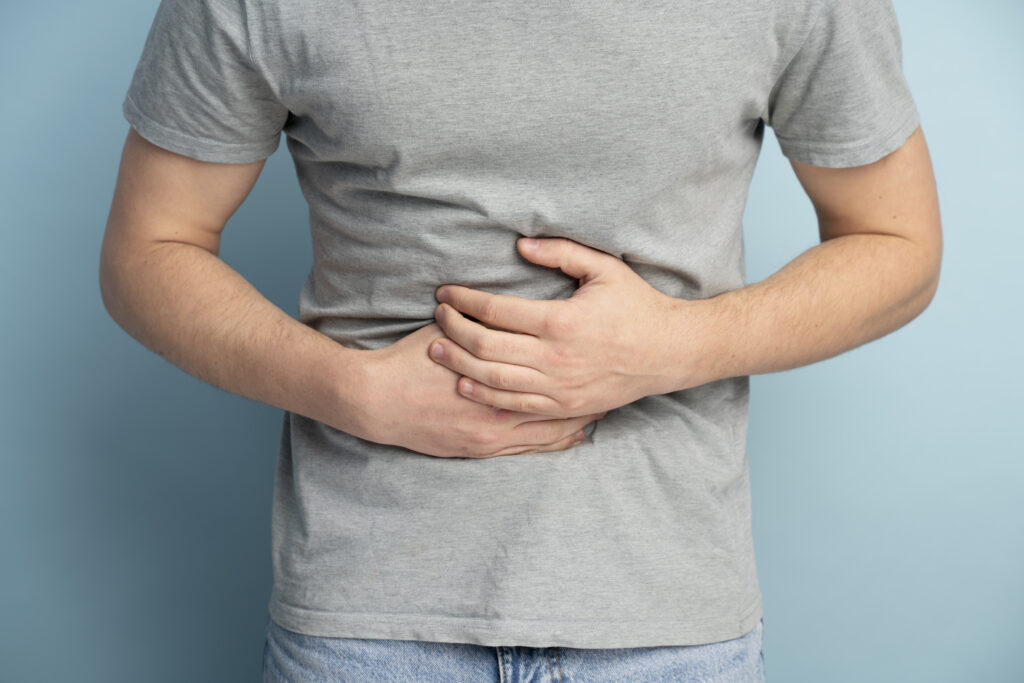How to Cure Indigestion Fast ? 10 effective ways

You can cure indigestion, which occurs sporadically, at home with the help of some natural remedies which are safe in long run but indigestion which continues for a very long time need medical attention.
How to Cure Indigestion Fast ? 10 effective ways
10 natural ways How to Cure Indigestion Fast
1. Ginger
There are a number of reasons why your stomach could be feeling a little queasy, such as having just tried a more daring dish at a new restaurant or feeling upset when you wake up. Thankfully, ginger is a useful and all-natural way to soothe an upset stomach.
Ginger is thought to protect the stomach and hasten the passage of food through the GI tract. Moreover, it might lessen gas, cramping, and bloating. You might want to boil some fresh ginger or mix some ground ginger with some hot water if you have an upset stomach.
Bloating is a common occurrence for most people, especially after meals. Eating dried ginger or brewing ginger tea can help reduce bloating that may be caused by food intolerance or excessive heat. Ginger can help reduce indigestion, which can prevent bloating from occurring in the first place. Indigestion is one of the main causes of bloating. To avoid this issue during the day, people who are prone to bloating might want to add ground ginger to their morning tea or water.
It’s critical to pay attention to persistent stomach issues. See a gastroenterologist to determine the cause of your intestinal issues if you are experiencing cramping and pain in your abdomen.
2. Baking soda
After a meal, baking soda, also known as sodium bicarbonate, is a safe and efficient way to reduce stomach acid and relieve heartburn, gas, bloating, and acid reflux.
One half teaspoon of baking soda should be dissolved in four ounces of water to use baking soda as an antacid at home. After eating, consume the solution within one to two hours. As needed, repeat every two hours until your symptoms subside.
According to studies, adults over 60 should not take more than three half-teaspoons daily and should not exceed seven half-teaspoon doses in a 24-hour period. It is not advisable to take baking soda for longer than two weeks.
It is not recommended for children under the age of twelve to consume baking soda unless specifically directed by their physician.
3.Antacids
Antacids are a combination of various compounds with various salts of calcium, magnesium, and aluminum as active ingredients. The antacids act by neutralizing the acid in the stomach and by inhibiting pepsin, which is a proteolytic enzyme.
4.Peppermint/Chamomile
In addition to being a common flavoring for gum, toothpaste, and tea, peppermint (Mentha piperita) is also used to ease upset stomachs and promote better digestion. It is frequently used to treat headaches, skin irritation, nausea, diarrhea, menstrual cramps, flatulence, and anxiety related to depression because of its numbing and calming properties. It is also a component of chest rubs that are used to relieve common cold symptoms.
Peppermint kills some types of fungi, bacteria, and viruses in test tubes, indicating that it may have antiviral, antibacterial, and antifungal qualities. The primary components of peppermint, menthol and methyl salicylate, have antispasmodic properties that soothe the gastrointestinal system. The application of peppermint for irritable bowel syndrome and dyspepsia is supported by numerous studies.
The digestive juice bile, which the body uses to break down fats, flows more easily when peppermint leaves the stomach. Food moves through the stomach faster as a result. However, you shouldn’t take peppermint if your indigestion symptoms are linked to GERD, also known as gastroesophageal reflux disease.f
5.Licorice Root
Heartburn, upset stomach, and acid reflux are common indigestion symptoms that can be relieved with licorice root extract.
When compared to a placebo, taking a 75-mg licorice capsule twice daily for 30 days significantly reduced the symptoms of indigestion in 50 adult participant.
Additionally, licorice root extract may lessen heartburn and acid reflux, two symptoms of gastroesophageal reflux disease (GERD).
A low dosage of glycyrrhetinic acid combined with conventional treatment led to significant symptom improvements in an 8-week study involving 58 adults with GERD.
Over a 2-year period, licorice root was found to be more effective than commonly used antacids at reducing symptoms in 58 adults with GERD, according to another study.
6. Fennel
Another popular food that has been shown to rapidly alleviate dyspepsia is fennel seed. The herb has been shown by researchers to help improve delayed gastric emptying, a condition that many dyspepsia sufferers experience, as well as to naturally lessen stomach spasms. Indigestion-related nausea, bloating, and cramping in the stomach can be relieved by chewing fennel seeds or drinking fennel tea.
7.Aloe vera juice
Aloe vera gel or juice may be good for your digestive system. It might provide relief by supporting and calming the lining of the gastrointestinal tract reliable Source from specific digestive problems such as ulcers, irritable bowel syndrome, or acid reflux.
8. Take Warm bath
By reducing cramps, bloating, and tension, heat can help with indigestion. A warm bath will not only help you relax and get ready for sleep when you’re ready for bed, but it can also quickly relieve indigestion. This is particularly true if you pair it with one of the previously listed remedies for indigestion.
For relief from cramps and pain in the middle of the night, try applying a warm compress or heating pad to your abdomen if you’re not a fan of taking baths.
9. Apple Cider Vinegar
In general, apple cider vinegar has gained popularity as a home remedy for digestive problems. One myth is that ACV can effectively and quickly treat bloating. However, there isn’t much concrete evidence to support this specific assertion.
ACV might be useful in some situations. Because ACV has an acidic nature by nature, it may help increase stomach acid levels in those with low stomach acidity, which will facilitate digestion. Theoretically, a delayed digestion can result in gas and bloating, which this could avoid.
Additionally, ACV has antimicrobial propertiesTrusted Source, which means that it might aid in the eradication of intestinal or stomach bacteria. ACV may help with symptoms of bloating because excess bacteria or bacteria in the upper intestines release gases that can cause bloating.
10.Elevate Your Upper Body
Though it may be tempting to just lay down and go to sleep, doing so will sadly exacerbate your indigestion symptoms. Stomach acid is more likely to move backward and into your throat when you’re sleeping, which can result in excruciating heartburn pain. Use a few pillows to support your head, neck, and upper chest to prevent that pain.
If your stomach is still full, it’s best to avoid lying down at all. You can reduce the symptoms of indigestion and speed up the process of food digestion by sitting or standing.


